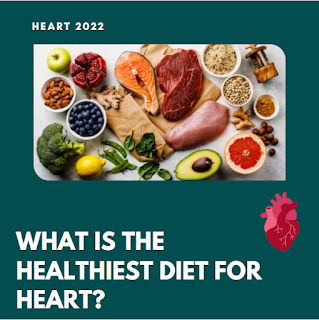What is the healthiest diet for heart?
Heart disease accounts for
nearly one-third of all deaths worldwide. Diet plays a major role in heart
health and can impact your risk of heart disease. In fact, certain foods can
influence blood pressure, triglycerides, cholesterol levels and inflammation,
all of which are risk factors for heart disease.
Here are some foods that
you should be eating to maximize your heart health.
Leafy green vegetables:
Leafy green vegetables like spinach, kale, and collard greens are well known
for their wealth of vitamins, minerals, and antioxidants. In particular,
they’re a great source of vitamin K, which helps protect your arteries and
promote proper blood
clotting.
Whole grains:
Refined carbohydrates increase the risk of coronary heart disease. Conversely,
whole grains are protective. An extra 1 or 2 servings per day of these foods
increases or decreases risk by approximately 10% to 20%.
Berries: Strawberries,
blueberries, blackberries, and raspberries are jam-packed with important
nutrients that play a central role in heart health. Berries are also rich in
antioxidants like anthocyanins, which protect against the oxidative stress and
inflammation that contribute to the development of heart disease.
Avocados:
Avocados are an excellent source of heart-healthy monounsaturated
fats, which have been linked to reduced levels of cholesterol and a lower
risk of heart disease. One study looked at the effects of three
cholesterol-lowering diets in 45 people with overweight and obesity, with one
of the test groups consuming one avocado per day.
Fatty fish and fish oil:
Fatty fish like salmon, mackerel, sardines, and tuna are loaded with omega-3
fatty acids, which have been studied extensively for their heart-health
benefits. Omega-3 fatty acids from fatty fish may have a protective role in the
risk of developing heart disease and slightly reduce the risk of CVD events and
arrhythmias.
As new evidence emerges,
the link between diet and heart disease grows stronger. What you eat can
influence almost every aspect of heart health, from blood pressure and
inflammation to cholesterol levels and triglycerides. Including these
heart-healthy foods as part of a nutritious, well-balanced diet can help keep
your heart in good shape and minimize your risk of heart disease.



Comments
Post a Comment